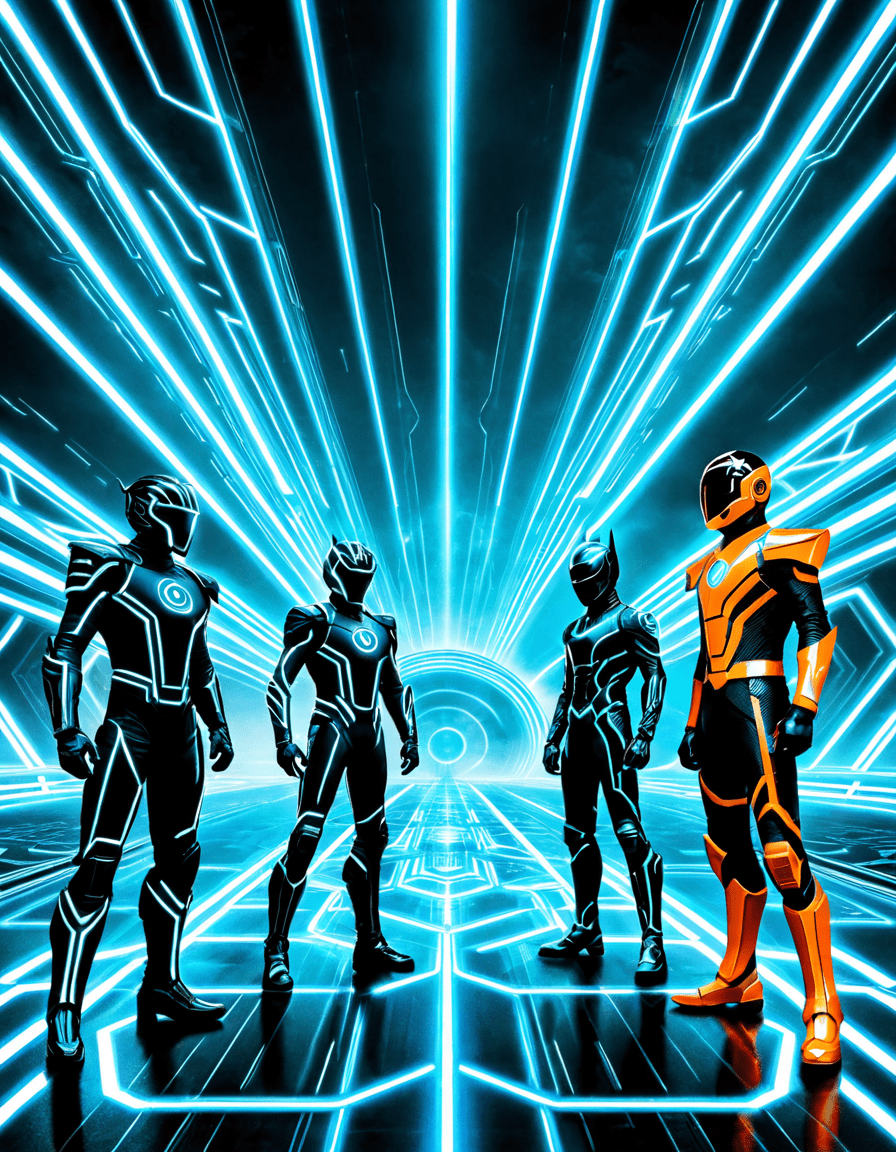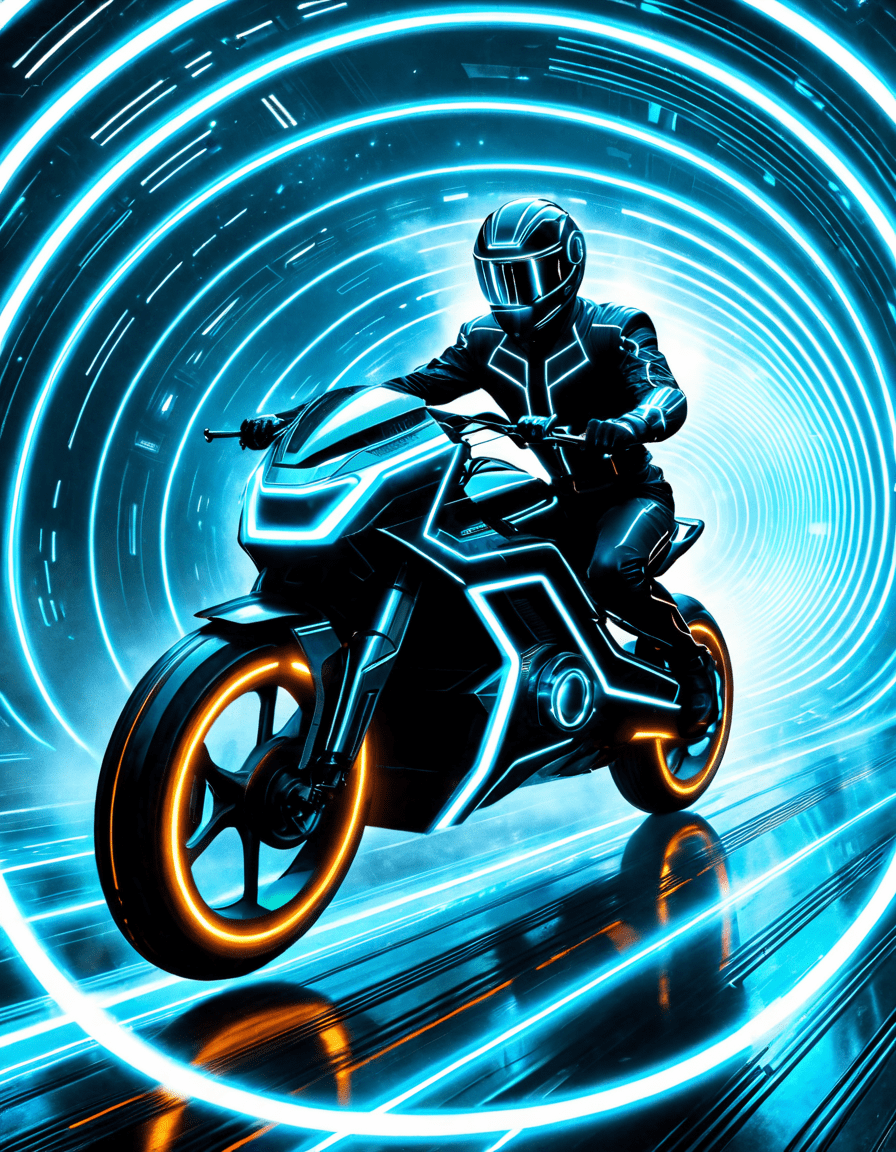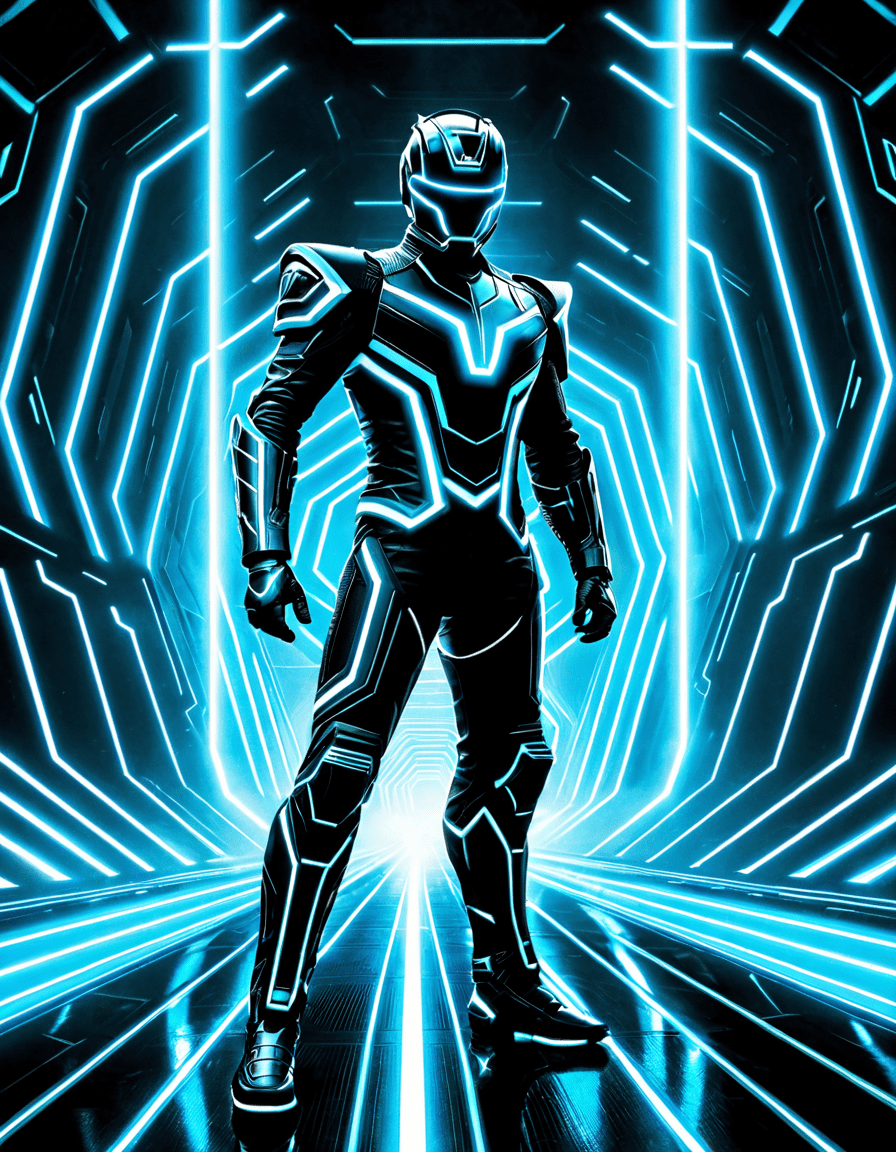In the pantheon of iconic films, Tron stands out as a pioneering masterpiece. Released in 1982, it carved out a space for digital adventure in cinema, pioneering a unique blend of live-action and computer-generated imagery that has inspired countless filmmakers. Despite its rocky initial reception, audiences gradually embraced Tron with open arms, and it sparked a cultural revival with the release of Tron: Legacy in 2010. Now, as we approach 2026, discussions about the future of Tron are more vibrant than ever, hinting at a new chapter in the saga of digital exploration.

The Resurgence of Tron in Pop Culture
It’s fascinating to see how Tron has continually reinvented itself within pop culture. The film’s initial struggle at the box office didn’t stop it from growing into a beloved classic. Beloved by fans, it began to cultivate a cult following shortly after its release, and today, its influence trickles down into mainstream cinema. With extensions like Tron: Legacy and various merchandise, Tron has found a lasting place in the world of corporate franchises and our collective nostalgia.
One of the key reasons Tron resonates so strongly is its blend of technology and human experience. Its narrative challenges viewers to consider the implications of living in a digital world. This theme is more relevant now than ever, and it’s even finding its way into the soundtracks of recent films. Can you imagine Hozier, an artist known for his rich and soulful sound, contributing to a Tron project? That fusion would draw on the emotional layers of the story, heightening its resonance.
Despite being a cult classic, Tron’s reach has also expanded significantly. It appears in video games, animated series, and even fashion. The resurgence of interest doesn’t just celebrate its legacy; it ignites creativity and invites speculation about where we might head next. Will the new Tron films combine Hozier’s haunting melodies with groundbreaking visuals? Only time will tell!

Hozier’s Soundtrack Revival and its Tron Connection
Sound is an integral part of the cinematic experience, and Tron’s inventive use of music underlined its groundbreaking status. The work of Daft Punk for Tron: Legacy not only redefined film soundtracks but also enhanced the immersive experience of the digital world. Fast-forward to today, Hozier’s unique blend of folk, soul, and rock could weave seamlessly into the fabric of a new Tron installment, creating an ethereal soundscape that amplifies the narrative depth.
Imagine Hozier’s evocative lyrics paired with captivating visuals, offering an emotional journey through the digital landscape. His music thrives on storytelling—an essential element of the Tron saga. With lyrics that explore themes of longing and humanity, Hozier’s sound could serve to ground the fantastical elements of a Tron narrative, lending it authenticity.
Incorporating Hozier’s work could also enrich the experience for viewers during this age of digital media. As Tron delves deeper into the complexities of the digital realm, music undeniably shapes how we interpret and connect to the characters’ journeys. A collaboration between Hozier and the Tron franchise could pave the way for exploring our relationship with technology through art.
The Top 5 Ways Tron Altered the Digital Adventure Genre
Tron and the Concept of En Apocalypse
In a digital age flooded with social media and tech reliance, Tron serves as a striking beacon of caution. The film’s warning about the consequences of technological immersion rings especially true today, as each of us navigates an era increasingly defined by screens. The concept of “En Apocalypse” has become part of pop culture, depicting our digital reality as a potential dystopia.
As we witness humanity’s blending with technology, Tron dares us to consider what we might lose along the way. Its vivid imagery of a digital world intertwines entertainment with a sobering critique of our values. This intricate balance reminds us that while pushing our limits is vital, we must be vigilant of our digital dependencies.
Moreover, the narrative encourages a connection beyond the screen, reminding us that genuine human experiences can’t be replicated in the virtual realm. As Tron cleverly suggests, it’s essential to maintain our humanity despite the hypnotic allure of technology. The dialogue about our futures is alive and ever-evolving, making Tron more relevant than ever.
A New Era for Digital Adventures: The Future of Tron
The future of Tron is filled with tantalizing possibilities. As filmmakers continuously experiment with cutting-edge technology, there’s an appetite for new stories in the digital landscape. We’ve seen with films like The Matrix Resurrections that audiences are hungry for narratives that meld timeless storytelling with modern advancements.
Fans are buzzing about potential directors and stars for upcoming Tron projects. Could a visionary like Denis Villeneuve step in? Or might we see fresh talent like Florence Pugh take on a significant role in the universe? The speculation excites fan communities and promises to revitalize the franchise.
As the boundaries between our realities and the digital worlds blur, Tron stands as both a reflection and a guidepost for creators. The aspirational ethos of the Tron saga could inspire the next wave of digital adventure films, reminding us to dream vast while remaining grounded in authenticity. As we look ahead, there’s no denying that while the game may change, the adventure continues.
As we journey onward, Tron’s legacy pops up in the most unexpected places, proving that its influence will echo across generations. From Hozier’s enchanting melodies to an ever-expanding digital landscape, the heart of Tron continues to beat strong, reminding us that the digital adventure is just beginning.
Tron: The Groundbreaking Legacy of Digital Adventure
The Digital Revolution
“Tron” burst onto the scene in 1982, diving headfirst into the computer-generated universe. Not only did it captivate audiences with its stunning visual effects, but it also laid the groundwork for future digital storytelling. Interestingly, “Tron” was one of the first films to ever use CGI, bringing to life a thrilling adventure that felt like a peek into the future of filmmaking. This innovative approach foreshadowed the rising popularity of computer-based narratives in film and lead the charge for digital animation. Fast forward a few decades, and we see a surge of technological advances reflected in recent releases like the marvels reviews, showcasing just how far the industry has come.
The Cast and Crew
The talent behind “Tron” not only helped shape its narrative but also became pivotal players in their own right. Under the helm of the visionary director Steven Lisberger, the film featured performances from actors like Jeff Bridges, who captured the essence of a computer programmer thrust into a digital landscape. Speaking of captivating, did you know that Leonard Nimoy, famed for his role as Spock, was originally considered for a part in “Tron”? That’s a cosmic connection if there ever was one! Additionally, actor Bruce Boxleitner, who played the heroic character Alan Bradley, also found fame in the iconic TV series “Babylon 5. Sometimes you can’t help but wonder what adventures he might have faced had “Tron” not paved the way!
Influencing Future Generations
“Tron” didn’t just stop at being a trendsetter; it also inspired countless filmmakers and storytellers who followed suit. The unique blend of live-action and animation caught the eyes of many, leading to a revival of similar styles in later films. For instance, the indie hit Memento played with nonlinear storytelling, much like “Tron” explored the duality of digital and real worlds. It’s fascinating how a groundbreaking film from 1982 influenced genres decades later! Plus, actors like Anton Yelchin and Lana Condor have mentioned how pieces like “Tron” sparked their love for filmmaking. It shows that inspiration often flows through the digital realms, shaping the aspirations of those coming after it.
So, next time you plug into the digital world of “Tron,” remember its far-reaching legacy. Who’d have thought that a story about computers could spark such creativity, right? The cyber adventure continues to resonate, inspiring everything from wild card Games to modern-day epics, proving the power of storytelling transcends even the fiercest of techno-futurism.





